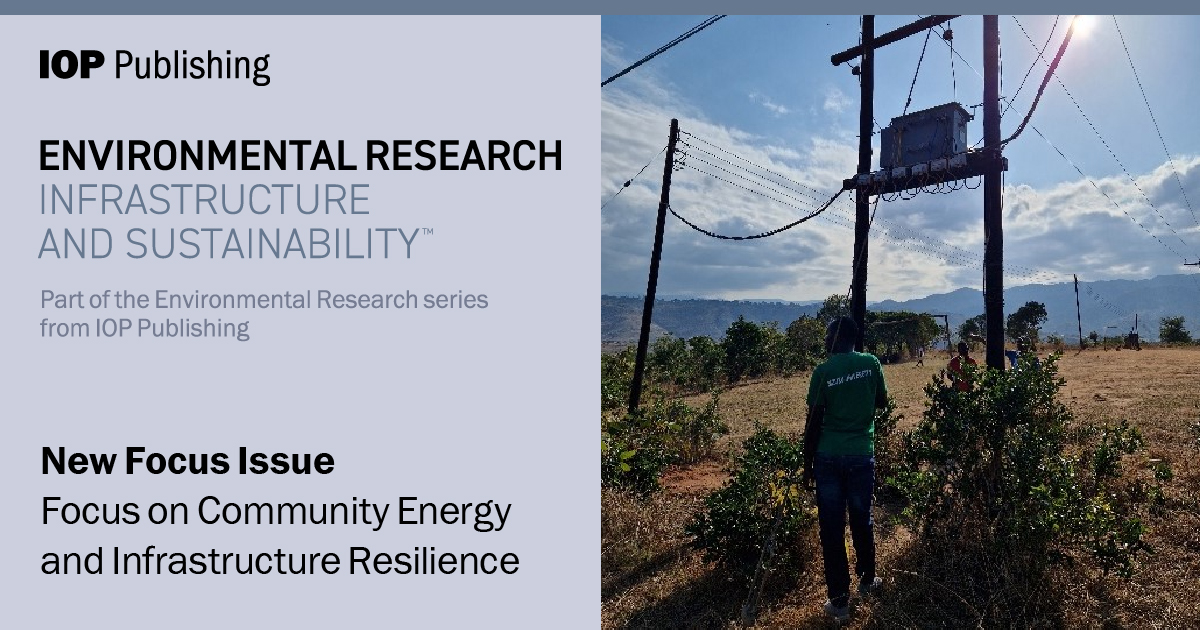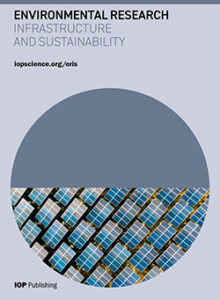ERIS特刊征稿|Focus on Community Energy and Infrastructure Resilience

特刊详情
客座编辑
- Vanesa Castán Broto,英国谢菲尔德大学
- Long Seng To,英国拉夫堡大学
- Mulualem Gebregiorgis Gebreslassie,埃塞俄比亚默克莱大学
主题范围
Communities play a vital role in building resilience through both preventive and post-disaster recovery actions. Community action is also essential to address differential vulnerabilities through equitable plans and programmes. Energy also underpins other aspects of life, from shelter, water, and livelihoods and hence is crucial in the search for equitable futures. Therefore, community energy contains a promise of equitable, resilient infrastructure. But to what extent can that promise be realised in practice?
This Special Issue aims to showcase a range of breakthrough experiences in developing resilient infrastructure through community energy. This includes studies which explore community energy projects as the means to facilitate more resilient infrastructure, and studies exploring the role of community energy projects in building community resilience by delivering infrastructure that can continue to provide energy services in the face of shocks and stresses and meet the future aspirations of the community. This is especially important for communities exposed to disasters, crises and underlying vulnerabilities.
We are particularly interested in papers that address:
- The implementation of community energy projects in different geographies
- The complex mechanisms whereby community energy builds infrastructure resilience
- The intersectionality aspects of community energy and resilience
- The interactions between community energy and other forms of infrastructure
- The synergies and trade-offs between climate mitigation and adaptation manifest in community energy
- The development of new adaptive, flexible models of infrastructure for a resilient future which engages with the challenges of cascading risks
- The development of new frameworks to understand the multiple dimensions of resilient infrastructure in energy transitions, including the role of community energy
投稿流程
特刊文章与ERIS期刊常规文章遵循相同的审稿流程和内容标准,并采用同样的投稿模式。
有关准备文章及投稿的详细信息,可以参阅IOPscience页面的作者指南。
作者可登入期刊主页进行在线投稿,选择“文章类型”,并在“选择特刊”的下拉框中选择“Focus on Community Energy and Infrastructure Resilience”。
投稿截止日期:2024年4月30日。
期刊介绍

- Environmental Research: Infrastructure and Sustainability(ERIS)是一本涵盖多学科的开放获取期刊,本期刊旨在发表针对各种规模和地理环境的基础建设及其相关系统所面临的各种挑战的研究,以及更广泛意义上的可持续性和持久性研究,包括环境、经济和社会因素等。我们欢迎包括定性、定量、实验性、理论及应用研究的所有方法学研究。
